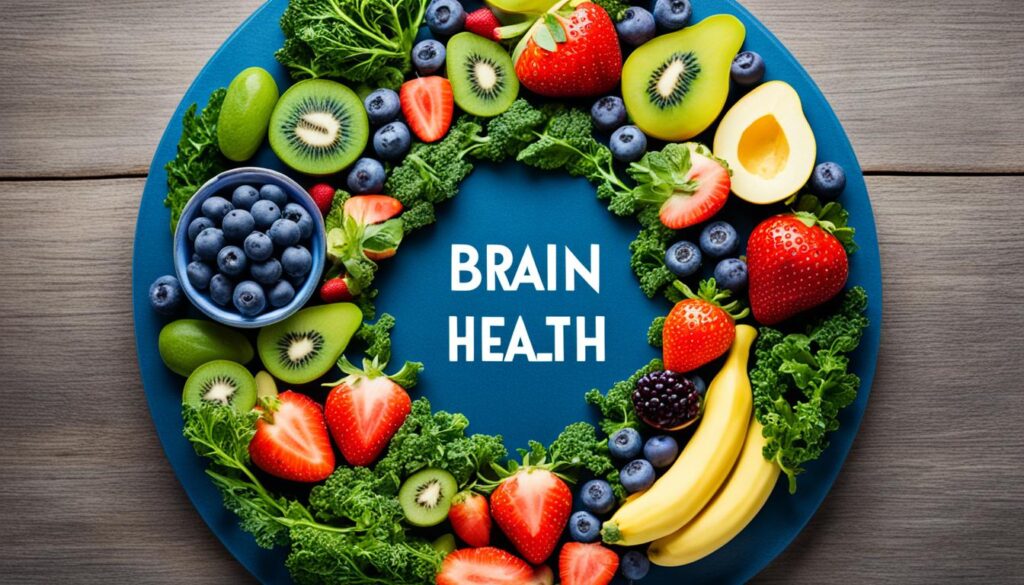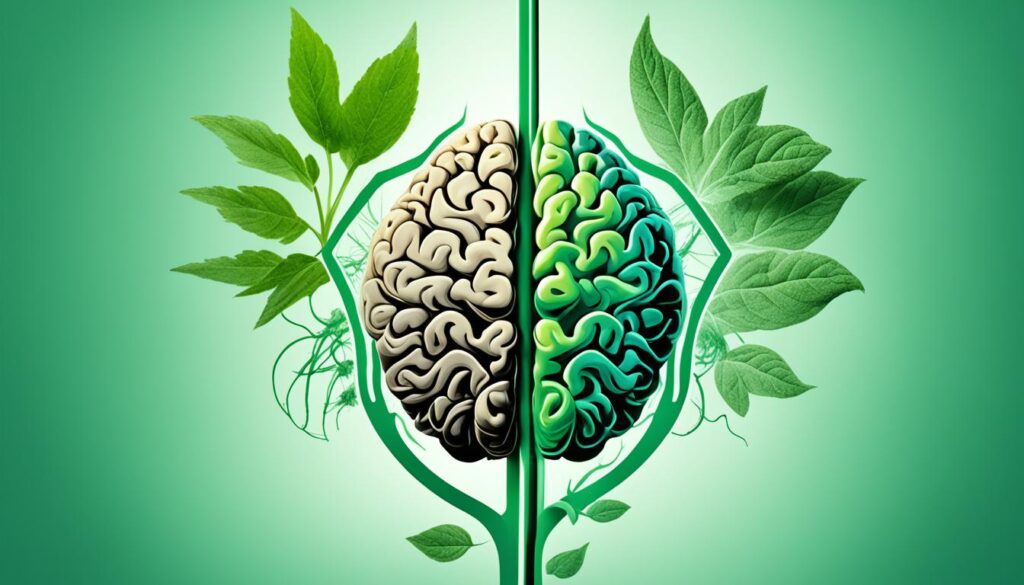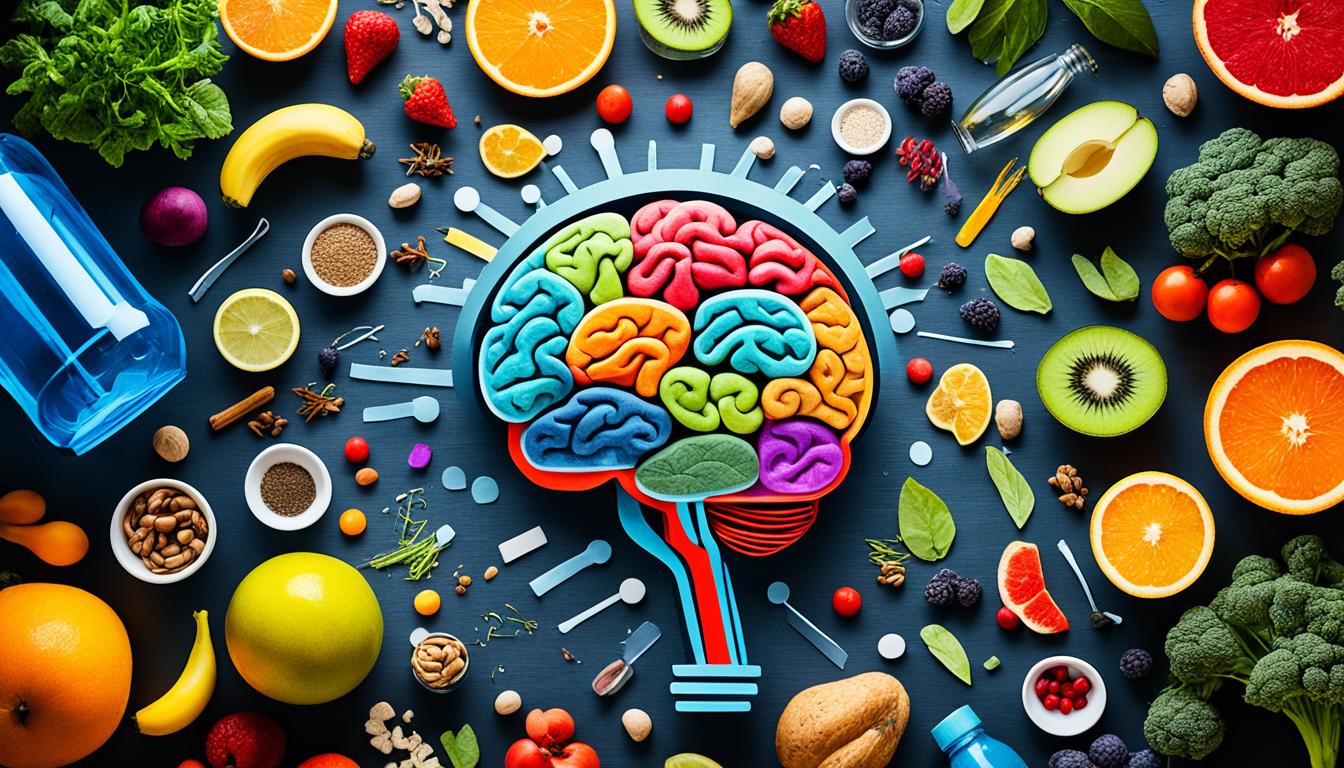Welcome to our comprehensive guide on how to prevent brain aneurysm naturally. In this article, we will share effective tips and natural remedies that can help protect your brain health and reduce the risk of aneurysms. By making simple lifestyle changes and incorporating specific dietary modifications, you can take proactive measures to safeguard your well-being. Let’s explore these preventive strategies together.
Key Takeaways:
- Discover tips and natural remedies for preventing brain aneurysms.
- Learn about lifestyle changes and diet modifications to protect your brain health.
- Understand the importance of proactive measures and early detection.
- Explore the role of managing blood pressure, quitting smoking, and maintaining a nutrient-rich diet.
- Commit to lifelong habits for brain aneurysm prevention and regular health screening.
Understanding Brain Aneurysm Risks and Prevention
When it comes to brain aneurysms, prevention is key. By understanding the risks associated with this condition and recognizing the early warning signs, you can take proactive measures to protect your brain health. Additionally, knowing the survival rate of individuals with brain aneurysms can shed light on the importance of prevention.
So, can you prevent a brain aneurysm? While it’s not possible to eliminate the risk, there are steps you can take to reduce your chances of developing a brain aneurysm. By leading a healthy lifestyle, managing certain health factors, and being aware of the warning signs, you can make a significant impact on your brain health.
Early warning signs of an aneurysm can vary depending on its location. They may include severe headaches, sudden and intense neck pain, blurred vision, sensitivity to light, numbness or weakness in the face or limbs, and changes in mental status or consciousness. If you experience any of these symptoms, seek medical attention immediately.
It’s important to note that not all brain aneurysms cause symptoms before they rupture, leading to a potentially life-threatening condition. This is why understanding the warning signs and seeking medical help is crucial.
When it comes to survival rates, it’s essential to recognize that the outcome can vary depending on factors such as the location and size of the aneurysm, as well as the overall health of the individual. While each case is unique, early detection and timely treatment significantly improve the chances of a positive outcome.
By educating ourselves about brain aneurysms, recognizing the warning signs, and taking preventive measures, we can lower the risk and protect our brain health.
Managing Blood Pressure: A Key Factor in Aneurysm Prevention
High blood pressure, also known as hypertension, is a significant concern when it comes to preventing brain aneurysms. The increased pressure within the blood vessels can weaken their walls and make them more susceptible to aneurysm formation and rupture. Therefore, it is crucial to manage blood pressure effectively to reduce the risk of aneurysms.
Why High Blood Pressure is a Concern
When blood pressure remains consistently high, it puts immense strain on the blood vessels, including those in the brain. Over time, this can lead to the development of aneurysms and increase the chances of rupture. Managing high blood pressure is essential in preventing aneurysms from forming or rupturing.
Monitoring Blood Pressure at Home
An effective way to manage blood pressure is to monitor it regularly at home. This allows individuals to keep track of their blood pressure readings and make necessary adjustments to their lifestyle and treatment plans as advised by healthcare professionals. There are various home blood pressure monitors available, ranging from wrist cuffs to upper arm cuffs, making it convenient for individuals to monitor their blood pressure at their own pace and in the comfort of their homes.
Lifestyle Adjustments for Blood Pressure Control
Implementing certain lifestyle changes can help control blood pressure and reduce the risk of an aneurysm. Some lifestyle adjustments that can be beneficial include:
- Maintaining a healthy weight: Losing excess weight and adopting a balanced diet can lower blood pressure and improve overall cardiovascular health.
- Engaging in regular physical activity: Exercise helps improve blood circulation, strengthen the heart, and manage blood pressure levels.
- Reducing sodium intake: Consuming less salt can decrease blood pressure, as excessive sodium intake is linked to hypertension.
- Limiting alcohol consumption: Excessive alcohol consumption can raise blood pressure, so it’s essential to moderate alcohol intake.
- Quitting smoking: Smoking narrows blood vessels, increasing blood pressure and the risk of aneurysm formation. Quitting smoking is crucial for overall cardiovascular health and aneurysm prevention.
- Managing stress: Chronic stress can contribute to high blood pressure. Incorporating stress-reduction techniques such as meditation, yoga, or hobbies can help maintain blood pressure within a healthy range.
- Following a balanced diet: A diet rich in fruits, vegetables, whole grains, lean proteins, and low-fat dairy products can contribute to better blood pressure control and overall health. Consuming foods rich in potassium, such as bananas, can also help lower blood pressure.
By making these lifestyle adjustments and monitoring blood pressure regularly, individuals can take proactive steps to manage their blood pressure effectively and reduce the risk of aneurysm rupture.
How To Prevent Brain Aneurysm Naturally
When it comes to preventing brain aneurysms, natural methods can play a significant role. In addition to lifestyle changes and diet modifications, there are supplements and non-surgical treatments that can help reduce the risk of aneurysms. Let’s explore some alternative options for aneurysm prevention.
One option is to incorporate supplements into your daily routine. Certain supplements have been found to promote brain health and support vascular integrity, reducing the likelihood of aneurysms. Walnut, for example, contains omega-3 fatty acids that have anti-inflammatory properties and may help prevent aneurysm development.
Another supplement to consider is magnesium. Magnesium is known for its ability to relax blood vessels and help maintain healthy blood pressure levels. Since high blood pressure is a significant risk factor for aneurysms, supplementing with magnesium can be beneficial.

In addition to supplements, there are non-surgical treatments available for aneurysm prevention. One such treatment is endovascular coiling, which involves inserting a coil into the aneurysm to prevent it from rupturing. This minimally invasive procedure is an alternative to traditional surgery and can be an effective option for certain patients.
It’s important to note that while these natural methods can help reduce the risk of brain aneurysms, they should not replace medical advice or regular check-ups with healthcare professionals. If you have concerns about brain aneurysm prevention or if you have a family history of aneurysms, it’s best to consult with a healthcare provider who can provide personalized guidance and recommendations.
By incorporating supplements and exploring non-surgical treatments, you can take proactive steps towards preventing brain aneurysms. Remember to prioritize your overall health and well-being, as maintaining a healthy lifestyle is crucial for reducing the risk of aneurysm development.
The Importance of a Nutrient-Rich, Antioxidant Diet
Incorporating a nutrient-rich, antioxidant diet into your lifestyle can play a crucial role in preventing brain aneurysms. Antioxidants act as a powerful defense mechanism against oxidative stress and inflammation, which are known risk factors for aneurysm formation and rupture. By including specific brain-healthy foods in your daily meals and following dietary patterns such as the Mediterranean and DASH diets, you can support your brain health and reduce the risk of aneurysms.
Antioxidants: Your Dietary Defense
Antioxidants are compounds that help protect your cells from damage caused by harmful molecules called free radicals. Free radicals are produced naturally in your body as a result of normal metabolism, but external factors such as pollution, smoking, and stress can also increase their production. When free radicals accumulate, they can cause oxidative stress, damaging cells and contributing to the development of various diseases, including brain aneurysms.
By consuming foods rich in antioxidants, you can neutralize free radicals and reduce oxidative stress, promoting overall brain health. Some of the most potent antioxidants include vitamins C and E, beta-carotene, and flavonoids.
Brain-Healthy Foods to Incorporate
Including brain-healthy foods in your diet can provide the necessary nutrients and antioxidants to support your brain’s health and prevent aneurysms. Here are some foods to consider incorporating:
- Leafy green vegetables such as spinach, kale, and broccoli
- Colorful fruits like berries, cherries, and pomegranates
- Nuts and seeds, including walnuts, flaxseeds, and chia seeds
- Whole grains like quinoa, brown rice, and oats
- Beans and legumes, such as lentils and chickpeas
These foods are not only packed with antioxidants but also contain essential nutrients like vitamins, minerals, and fiber that support brain health and overall well-being.
Understanding the Mediterranean and DASH Diets
The Mediterranean and DASH (Dietary Approaches to Stop Hypertension) diets have been extensively studied for their positive effects on cardiovascular health and brain function. Both diets emphasize consuming whole, unprocessed foods, including plenty of fruits, vegetables, whole grains, lean proteins, and healthy fats.
The Mediterranean diet, inspired by the traditional eating habits of countries bordering the Mediterranean Sea, emphasizes fruits, vegetables, legumes, and olive oil. This diet is rich in antioxidants, healthy fats, and fiber, all of which contribute to brain health and the prevention of aneurysms. The DASH diet, on the other hand, focuses on reducing sodium intake and increasing consumption of fruits, vegetables, whole grains, lean proteins, and low-fat dairy products. This diet is known for its ability to lower blood pressure, a significant risk factor for aneurysm formation and rupture.
By following these dietary patterns, you can avail yourself of the numerous health benefits and reduce the risk of developing brain aneurysms.

Quitting Smoking and Its Impact on Aneurysm Risk
Smoking is a significant risk factor for brain aneurysms. The harmful chemicals present in cigarettes can damage the blood vessels in the brain, making them more prone to developing aneurysms. Quitting smoking is crucial to reduce the risk of aneurysm formation and rupture.
The Connection Between Smoking and Brain Aneurysms
Research has shown a clear link between smoking and an increased risk of brain aneurysms. Smoking not only weakens the blood vessels in the brain but also raises blood pressure, making aneurysm rupture more likely. The toxins in cigarette smoke can also promote the formation of blood clots, further increasing the risk of aneurysm complications.
To protect your brain health and reduce the risk of aneurysms, quitting smoking is paramount. By quitting, you not only eliminate the direct harm caused by smoking but also improve overall cardiovascular health, which plays a crucial role in aneurysm prevention.
Resources to Support Smoking Cessation

Quitting smoking can be challenging, but there are numerous resources available to help you on your journey. Consider the following options:
- Quit lines: Dedicated helplines staffed by professionals who can provide guidance and support throughout the quitting process.
- Nicotine replacement therapy (NRT): Products like patches, gum, or inhalers that deliver nicotine to help ease withdrawal symptoms and cravings.
- Prescription medications: Certain medications can aid in smoking cessation by reducing cravings and withdrawal symptoms.
- Support groups: Joining a support group can provide a sense of community and understanding as you navigate the challenges of quitting smoking.
Remember, quitting smoking is one of the most important steps you can take to protect your brain health and reduce the risk of a brain aneurysm. Reach out to the available resources and support systems to increase your chances of success.
Life After Smoking and Aneurysm Prognosis
Once you quit smoking, your body begins to heal itself, and your risk of developing a brain aneurysm gradually decreases. It may take time for the blood vessels in your brain to regain their strength, but with each passing day, you are reducing your aneurysm risk.
It’s important to note that quitting smoking is just one aspect of aneurysm prevention. Adopting a healthy lifestyle that includes regular exercise, a balanced diet, and managing other risk factors like high blood pressure and cholesterol levels is crucial for overall brain health.
By quitting smoking and making positive lifestyle choices, you are actively taking control of your health and lowering the likelihood of a brain aneurysm. Remember, prevention is always better than treatment when it comes to protecting your brain.
Mitigating Other Health Factors: Cholesterol and Weight Management
When it comes to preventing brain aneurysms, managing other health factors such as cholesterol and weight plays a crucial role. By implementing strategies to control these factors, you can significantly reduce the risk of aneurysms.
High cholesterol levels can contribute to the development and rupture of aneurysms. To maintain healthy cholesterol levels, incorporate a balanced diet rich in fruits, vegetables, whole grains, and lean proteins. Additionally, limit the consumption of saturated and trans fats to prevent the buildup of cholesterol in the arteries.
Weight management is also essential for aneurysm prevention. Obesity and excess weight increase the strain on blood vessels, making them more susceptible to aneurysm formation and rupture. To maintain a healthy weight, focus on regular physical activity and a well-rounded exercise routine. Combining cardiovascular exercises, strength training, and flexibility exercises can help you achieve and maintain a healthy weight.
Evidence has shown that maintaining a healthy weight and managing cholesterol levels are vital for reducing the risk of brain aneurysms. By adopting a healthy lifestyle and making these changes, you can safeguard your brain health and minimize the chances of aneurysm development.
Furthermore, consider incorporating supplements into your routine that promote brain aneurysm prevention. Consult with your healthcare provider to determine which supplements are suitable for you. Some supplements, such as fish oil, magnesium, and vitamin D, have been associated with the prevention of aneurysms.
By prioritizing cholesterol management, weight control, and incorporating suitable supplements, you can proactively reduce the risk of brain aneurysms and protect your brain health for the long term.
Conclusion
By implementing the brain aneurysm prevention tips and natural remedies discussed in this article, you can take a proactive approach to protect your brain health. Remember that committing to lifetime habits is crucial for long-term prevention.
Regular health screening is essential for early detection and prevention of brain aneurysms. Make sure to schedule routine check-ups with your healthcare provider to monitor your overall health and identify any potential risk factors.
Together, we can prioritize brain health and reduce the incidence of brain aneurysms. By following these proactive measures and making conscious choices, we can lead healthier lives and minimize the risk of experiencing a brain aneurysm. Take control of your health and invest in preventive measures today!




